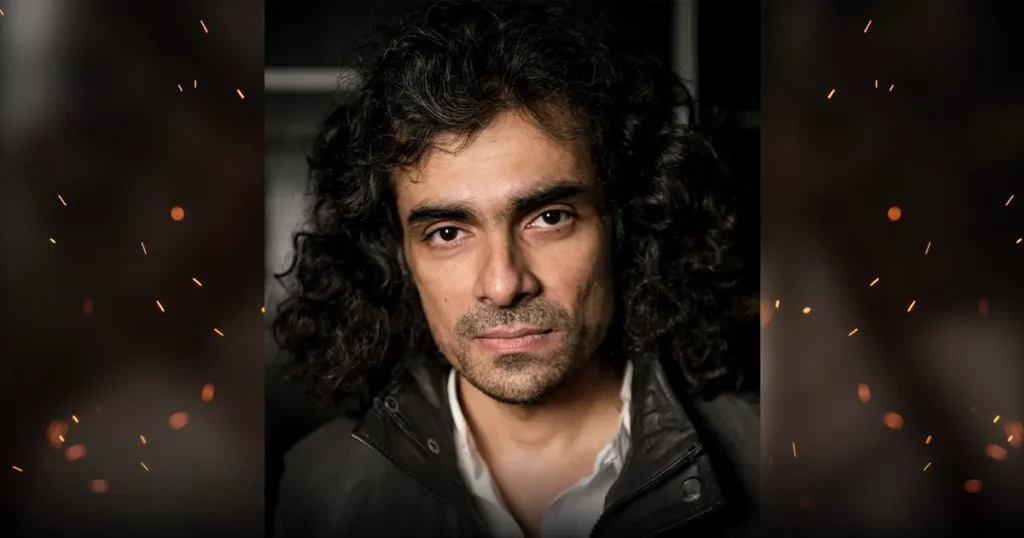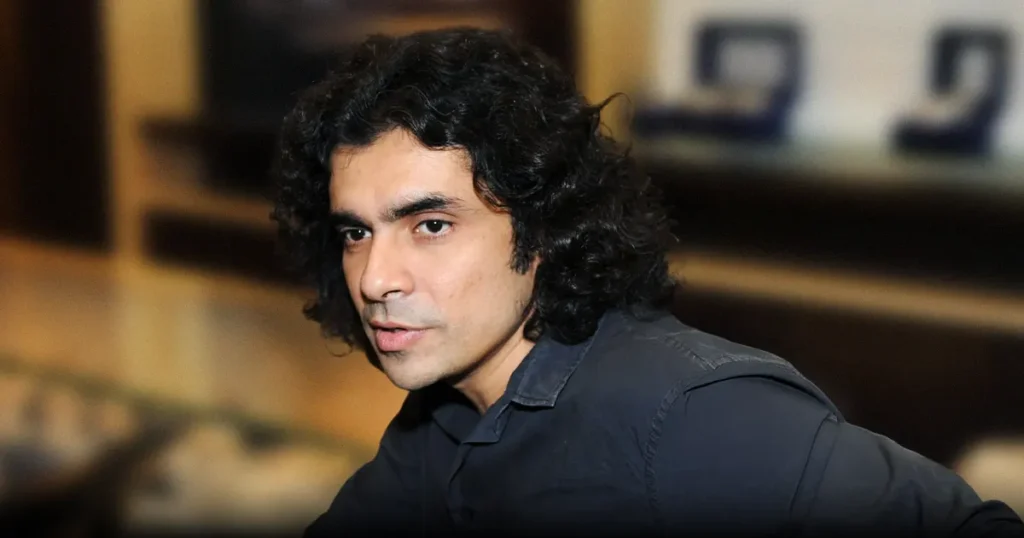In a recent statement that has sparked significant debate within Bollywood, renowned filmmaker Imtiaz Ali challenged the commonly held belief that compromising one’s values could increase a woman’s chances in the film industry. During a conversation at the International Film Festival of India (IFFI) 2024, Ali referred to the idea of the casting couch—the notion that women must offer sexual favors in exchange for roles—as a “myth.” His comments have sparked an intense discussion around the complex and sensitive issues of exploitation, harassment, and gender dynamics in Bollywood.

This article delves into Ali’s controversial remarks, the subsequent backlash, and the broader implications of his stance on the ongoing conversation about gender-based exploitation in the Indian film industry. By examining both Ali’s viewpoint and the criticisms leveled against him, this piece aims to provide a balanced perspective on the challenges women face in Bollywood and the industry’s evolving response to such issues.
Imtiaz Ali’s Statement: Myth or Misstep?
Imtiaz Ali, known for his films like Jab We Met and Highway, made headlines when he stated that the myth surrounding the casting couch—that women must compromise their integrity to succeed in Bollywood—is not a reality for everyone. Ali clarified that, based on his experiences in the film industry for over two decades, he has observed that a woman’s success is not contingent on her willingness to submit to such compromises. Rather, he emphasized that a woman’s self-respect is key to earning respect in return from others, including film producers, directors, and audiences.
Ali further argued that many women in the industry continue to succeed without yielding to such pressures. He suggested that this narrative of compromise as a path to success is both harmful and misleading, especially to young women entering the industry. “If a girl cannot say ‘no,’ her chances of succeeding don’t necessarily increase,” Ali remarked, attempting to discredit the myth and offer a message of empowerment to aspiring actresses.
The Backlash: Criticism from Vinta Nanda
While Ali’s comments were likely intended to address an issue many consider problematic, they were met with sharp criticism, particularly from filmmaker Vinta Nanda. Nanda, known for her 1990s television show Tara, which tackled complex social issues, publicly rebuked Ali for being out of touch with the realities women face in Bollywood. Nanda, who has been vocal about her own experiences with harassment, emphasized that while Ali might have good intentions, his privileged position—both in terms of his gender and career—prevents him from fully understanding the extent of exploitation that many women face in the industry.
In an Instagram post, Nanda called for Ali to “stop pontificating about what women face in the entertainment industry.” She argued that Ali’s privileged position as a successful male director shielded him from the exploitative dynamics that many female actors, especially newcomers, have to contend with. Nanda’s response echoed the concerns of several other women in the industry who feel that the issue of harassment is too often minimized or dismissed by those in positions of power.
A Complex Reality: Gender Discrimination and Exploitation in Bollywood
Despite the backlash, Ali’s statement has brought attention to an often-overlooked aspect of the conversation on the casting couch. While it is undeniable that exploitation and harassment exist in the film industry—just as they do in many other sectors—Ali’s position also highlights the complexities of this issue. The casting couch is not a universal experience for all women in Bollywood, but it remains a stark reality for many.
Harassment in the industry is not just about sexual favors; it also includes manipulation, coercion, and undue pressure placed on women, especially those who are new or lack significant representation. The casting couch becomes a symbol of broader systemic problems in Bollywood, where access to opportunities is often mediated by an imbalance of power and gender inequality.
According to several actresses and industry insiders, the power dynamics that exist on sets and in producers’ offices are not always so overt. Some argue that while not every actress faces direct demands for sexual favors, there is often an underlying expectation that women must play along with certain unwritten rules to advance their careers. These can include accepting uncomfortable situations, being silent about misconduct, or even tolerating inappropriate comments and behaviors in exchange for roles.
The Role of Industry Insiders and Women Who Speak Out
For years, women in the industry have spoken out against the exploitation they face. High-profile cases such as the #MeToo movement in India, which gained momentum in 2018, have brought several incidents of harassment to the forefront. Actresses like Tanushree Dutta, who accused Nana Patekar of harassment on the set of Horn Ok Pleassss, and others have publicly shared their stories of mistreatment in Bollywood.
These accounts reflect the fact that harassment and exploitation are real issues that require immediate attention and action. While Ali’s remarks about the casting couch may not align with the lived experiences of all women, they provide a stark contrast to the growing number of survivors who have fought for their voices to be heard.
The Power of Representation and Self-Respect
Ali’s comment about self-respect plays an important role in reshaping the conversation about the casting couch. For many women in the industry, maintaining one’s dignity and standing up to exploitation has become a central theme in their personal and professional lives. By emphasizing self-respect, Ali echoed a sentiment that many women in Bollywood endorse. If the casting couch is a myth for some, it remains a harsh reality for others.
Ultimately, the narrative needs to shift towards accountability. While Ali may believe that success does not depend on compromise, the system needs to evolve to ensure that every woman in the industry is treated with the respect they deserve—regardless of their background or career status. Bollywood, like many other industries, is still grappling with the reality of gender discrimination and harassment. It is crucial that these issues are addressed with sensitivity, openness, and a willingness to make long-lasting changes.
A Call for Systemic Change
While Imtiaz Ali’s comments may have been intended to challenge harmful myths, they inadvertently exposed the divisions within the industry on how to address harassment and exploitation. The truth is, the casting couch does exist in various forms, but so do women who continue to break barriers and succeed without compromising their values.
What is clear from this controversy is that there is a need for systemic change in Bollywood. This includes a zero-tolerance policy for harassment, better support systems for women entering the industry, and more comprehensive efforts to tackle gender inequality in every aspect of the industry. Ali’s remarks have given voice to one side of the debate, but they also underscore the need for a broader conversation about how Bollywood can support and empower women, not just with words, but with real, enforceable actions.
Conclusion
The casting couch controversy in Bollywood is far from settled, and Imtiaz Ali’s recent comments have opened up new dialogues on the issue. While his belief in the empowerment of women without resorting to compromise is commendable, it is also essential to recognize that the film industry’s environment remains rife with challenges for women. To foster true equality, the conversation must move beyond myths and denial, focusing instead on concrete steps toward a safer and more respectful working environment for all.
In the end, the goal is clear: to ensure that every woman who enters Bollywood does so on her own terms—respected, valued, and free from exploitation. This can only happen when the entire industry commits to not only recognizing the issue but actively working toward a solution that benefits all.






